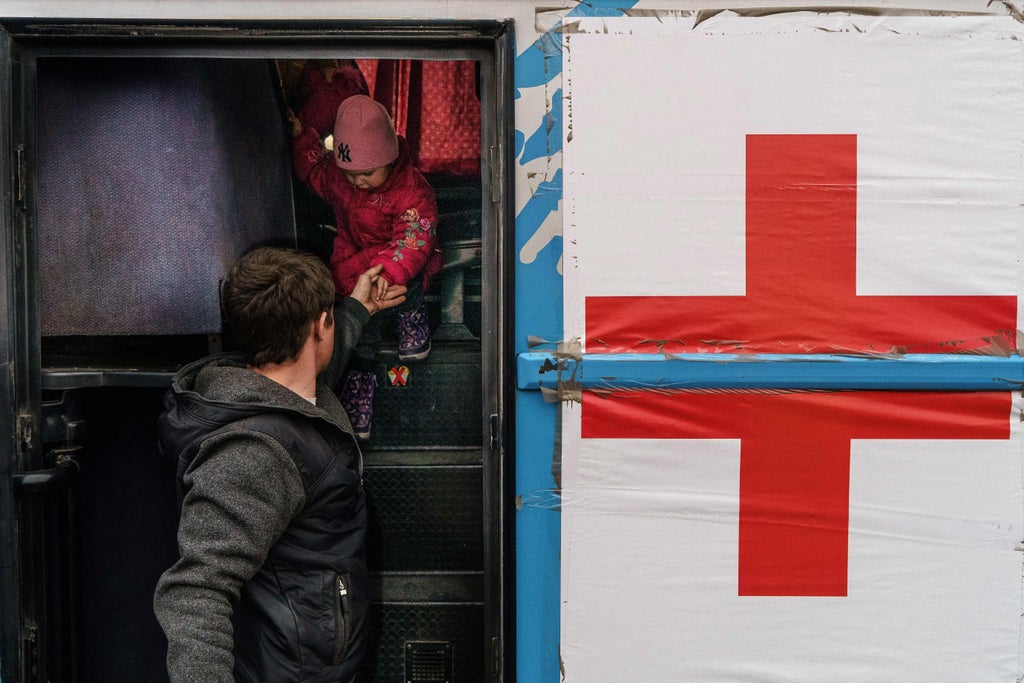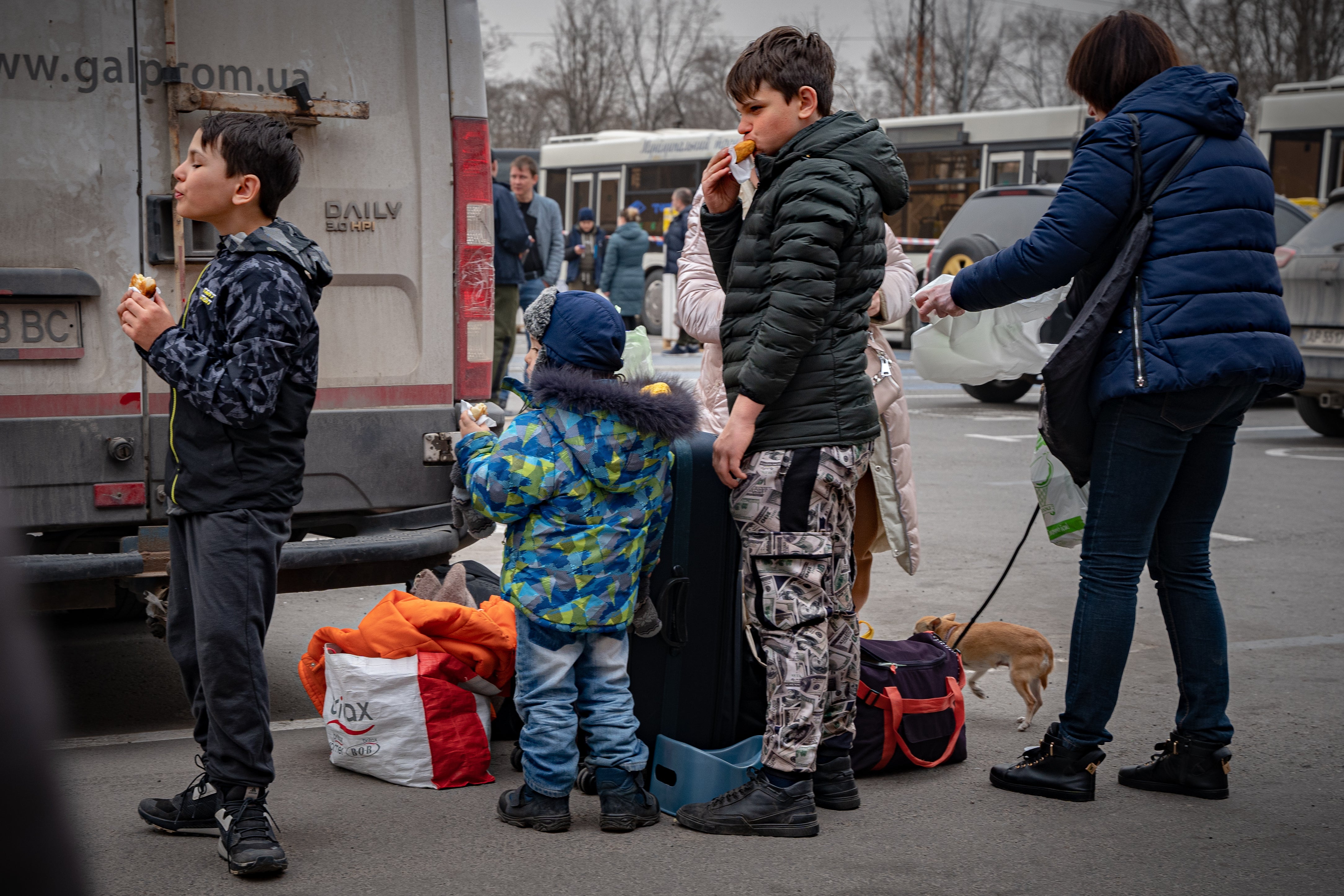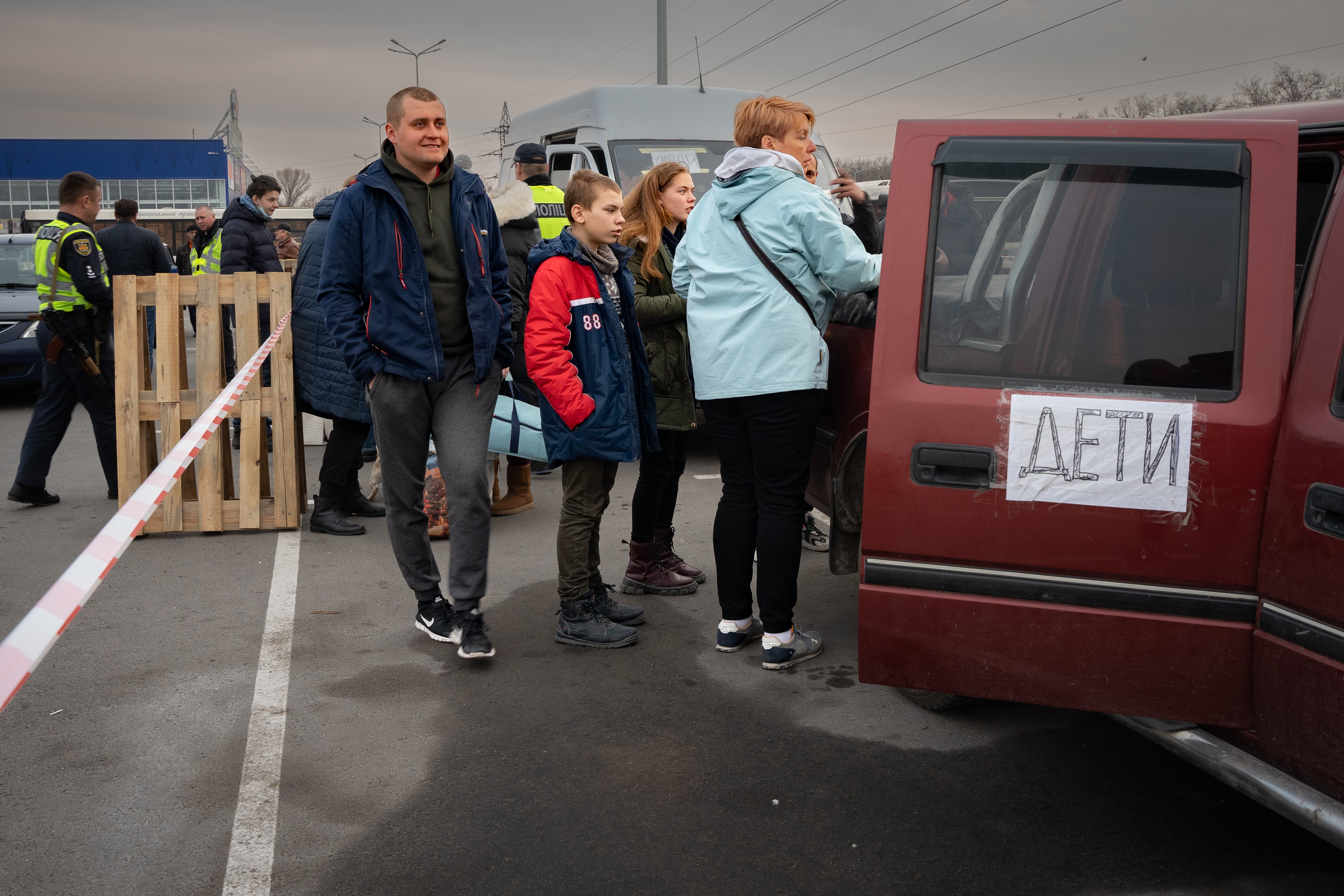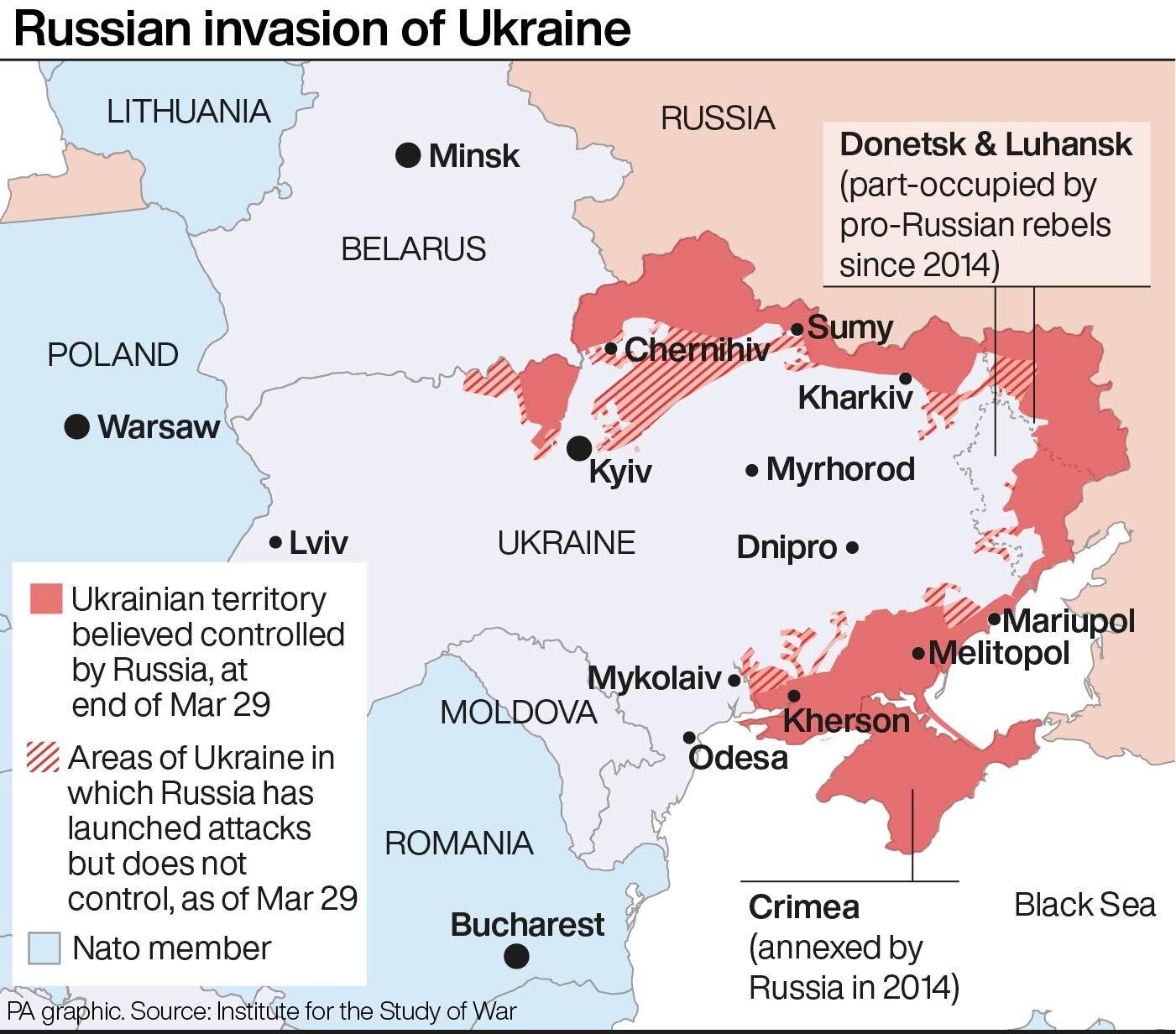
Hopes of evacuating civilians from the besieged city of Mariupol were dashed again on Friday after Ukrainian officials accused Russia of breaking its promises over a humanitarian corridor, blocking buses and stealing aid.
Authorities in Mariupol said it was not possible to enter the city, while The International Committee of the Red Cross (ICRC) said late on Friday that it had to postpone an attempt to evacuate people from the strategic port location but would try again on Saturday.
“We don’t see a real desire from the Russians ... to provide an opportunity for Mariupol residents to evacuate to territory controlled by Ukraine,” Petro Andryushchenko, an aide to the mayor of the city, said on Friday on the messaging app Telegram.
“The city remains closed to entry and very dangerous to exit with personal transport. In addition, since yesterday the occupiers have categorically not allowed any humanitarian aid – even in small quantities – into the city.”
However, a separate government-led convoy reached the occupied neighbouring city of Berdyansk – some 75km west – on Friday and was able to transport about 2,000 people towards the nearby relative safe haven of Zaporizhzhia, according to Mariupol’s city council. Many of those on board the buses – which were escorted by the Ukrainian Red Cross – are believed to be refugees from Mariupol who had managed to leave the city by their own means.
Repeated efforts to deliver aid to Mariupol and help civilians evacuate have failed, leaving an estimated 170,000 people trapped in the city, which has suffered some of the heaviest shelling by Russian forces since Vladimir Putin’s invasion began on 24 February.

The latest evacuation attempt was was initially planned for Thursday, when Ukrainian deputy prime minister Iryna Vereshchuk said the ICRC had confirmed that Russia had agreed to open a humanitarian corridor to Mariupol. The city’s capture would be a significant victory for the Russians, giving them an unbroken land bridge to annexed Crimea.
Yet Ms Vereshchuk later said that Russian soldiers had blocked a convoy of 45 buses outside Berdyansk and seized 14 tonnes of food and medical supplies bound for the city.
This meant only 631 people were able to get out of the Mariupol in private cars on Thursday, the Ukrainian government said.
The governor of Ukraine’s eastern Donetsk region on Friday said Russia had not delivered on its promises about allowing humanitarian aid and access to Mariupol.
“Humanitarian deliveries, despite all the agreements and promises of the Russian side, are not being carried out,” governor Pavlo Kyrylenko said in a televised address. “The humanitarian corridor ... is essentially not operational.”

The ICRC, which had initially hoped to lead the convoy of 45 buses, told The Independent on Friday morning they were making their own attempt to deliver aid to Mariupol, with the additional aim of securing safe passage for civilians still trapped there.
However, it released a statement later on Friday saying that its team – consisting of three vehicles and nine personnel – had been on its way to Mariupol but had to return to Zaporizhzhia “after arrangements and conditions made it impossible to proceed”.
The ICRC said it would make a renewed attempt on Saturday. The organisation previously warned that “the lives of tens of thousands of people in Mariupol” are at stake.
“We are running out of adjectives to describe the horrors that residents in Mariupol have suffered,” ICRC spokesperson Ewan Watson said on Friday.

The city has suffered the most brutal bombardment of the war and was described as “worse than hell” by those who escaped in their own cars or on foot under shelling.
Since the start of March, phone networks, electricity, water and heating have been cut. Food has all but run out and civilians have been reduced to collecting rainwater or melting snow to drink.
Families who managed to make it safely to Zaporizhzhia in recent days told The Independent that tens of thousands of people were trapped in the worst hit areas of the city –such as the Left Bank – and could not even move to the outskirts of the city in an attempt to evacuate.
There were about 430,000 people in the city before the war but less than half that number remain following multiple evacuation efforts. Many people have also died in attacks on a maternity hospital, fire department, and homes in the past few weeks.
There are particular concerns for the elderly, sick and disabled in Mariupol, who are not able to make the highly dangerous journey.
“People have looted all the shops to try to survive, but even that is extremely dangerous because of the shelling,” said Maksym, 49, a father-of-two who fled Mariupol to Zaporizhzhia a few days ago with his family and dog after getting a lift from another family with a car.
“We tried to help a disabled person out of their flat but we couldn’t get there before the shelling started,” he told The Independent.
Meanwhile, French president Emmanuel Macron promised to keep working to establish a sustainable humanitarian corridor in and out of Mariupol in talks on Friday with Ukrainian leader Volodymyr Zelensky.
After the call, Mr Zelensky tweeted: “The initiative of [France] on humanitarian corridors from Mariupol must be implemented!"





